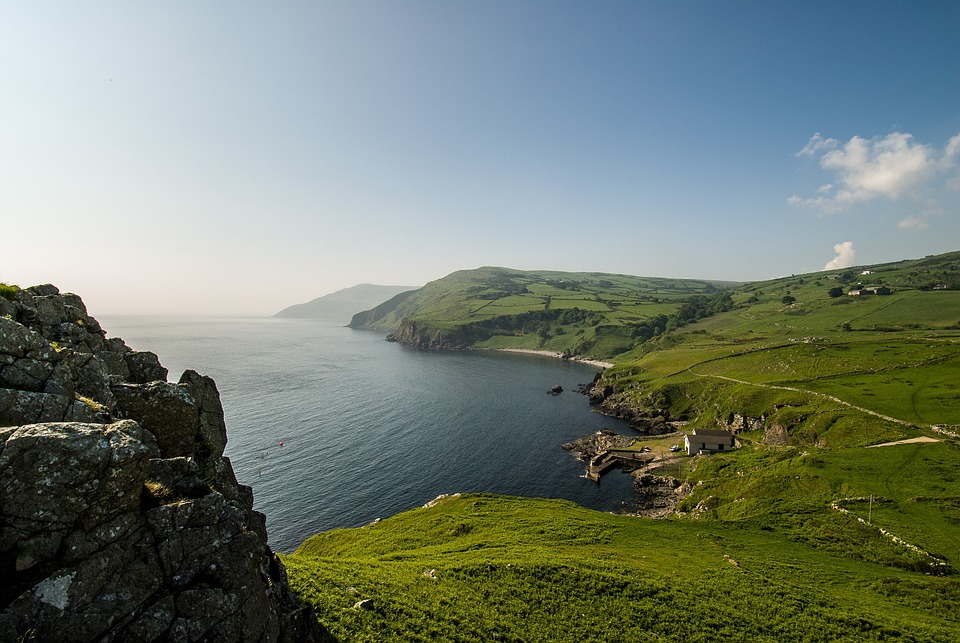
The Influence of Irish Culture on Northern Ireland’s Identity
Northern Ireland is a region with a complex and often contentious history, shaped by the influences of Irish and British culture. The island of Ireland has been divided into two separate entities since the early 20th century – the Republic of Ireland in the south, and Northern Ireland in the north. This division has resulted in a unique blend of Irish and British identity in Northern Ireland, with Irish culture playing a significant role in shaping the region’s identity.
The History of Irish Culture in Northern Ireland
The influence of Irish culture in Northern Ireland can be traced back to the early Celtic tribes that inhabited the island of Ireland. The Celts brought their language, customs, and traditions to the region, laying the groundwork for what would eventually become Irish culture. Over the centuries, Ireland was invaded and colonized by various foreign powers, including the Vikings, Normans, and English. Despite these invasions, Irish culture remained resilient and continued to evolve, incorporating elements from different cultures while maintaining its distinct identity.
One of the most significant periods in Irish history was the Gaelic Revival of the late 19th and early 20th centuries. During this time, there was a renewed interest in Irish language, literature, music, and folklore, as many Irish nationalists sought to reclaim their cultural heritage from British influence. The Gaelic Revival had a lasting impact on Northern Ireland, leading to a resurgence of interest in Irish culture and a growing sense of Irish identity among the region’s population.
The Influence of Irish Language and Literature
The Irish language, also known as Gaelic or Irish Gaelic, has played a central role in shaping Northern Ireland’s identity. Despite centuries of English colonization and suppression, the Irish language has survived and continues to be spoken by a small but dedicated community of speakers in Northern Ireland. The language is closely tied to Irish culture and traditions, with many Gaelic words and phrases woven into everyday speech and expressions.
In addition to the Irish language, Irish literature has also had a profound influence on Northern Ireland’s identity. Works by renowned Irish writers such as James Joyce, W.B. Yeats, and Seamus Heaney have resonated with readers in Northern Ireland and contributed to a sense of shared cultural heritage. Irish literature often explores themes of identity, history, and nationalism, reflecting the complex relationship between Northern Ireland and the rest of the island.
The Role of Irish Music and Dance
Irish music and dance are integral parts of Northern Ireland’s cultural landscape, with traditional Irish music and dance being popular forms of expression among the region’s residents. From lively jigs and reels to haunting ballads and laments, Irish music reflects the joys and sorrows of the Irish experience and serves as a powerful means of connecting people to their heritage.
Irish dance, particularly the iconic art form of Riverdance, has also gained widespread popularity in Northern Ireland and beyond. Traditional Irish step dancing is known for its intricate footwork, quick rhythms, and vibrant costumes, capturing the energy and spirit of Irish culture. Dance schools and performances are a common sight in Northern Ireland, where people of all ages come together to celebrate their shared heritage through music and dance.
The Impact of Irish Festivals and Celebrations
Irish festivals and celebrations play a vital role in connecting people to their cultural roots and fostering a sense of community in Northern Ireland. Events such as St. Patrick’s Day, the Feast of St. Brigid, and the Ould Lammas Fair are popular occasions for people to come together and celebrate Irish culture through music, dance, food, and festivities.
These events also serve as opportunities for people in Northern Ireland to showcase their pride in their Irish heritage and to connect with others who share a similar heritage. Festivals and celebrations help to strengthen the bonds between people in Northern Ireland and reinforce their sense of belonging to a wider Irish community.
Challenges and Opportunities for Northern Ireland’s Identity
While Irish culture has played a significant role in shaping Northern Ireland’s identity, the region’s complex history and political divisions have also created challenges for maintaining a shared sense of cultural identity. The Troubles, a period of sectarian violence and conflict that lasted for decades, deeply divided communities in Northern Ireland and strained relations between nationalist and unionist groups.
Despite these challenges, there are also opportunities for Northern Ireland to embrace its rich cultural heritage and forge a path toward reconciliation and unity. By celebrating and promoting Irish culture through language, literature, music, dance, and festivals, Northern Ireland can foster a sense of shared identity that transcends political and religious differences.
In conclusion, the influence of Irish culture on Northern Ireland’s identity is profound and enduring. From the ancient traditions of the Celts to the modern expressions of Irish music and dance, Irish culture continues to shape the region’s sense of self and connect its people to a shared heritage. By embracing and celebrating its Irish roots, Northern Ireland can build a stronger, more inclusive identity that reflects the rich tapestry of its cultural heritage.
Leave a Comment